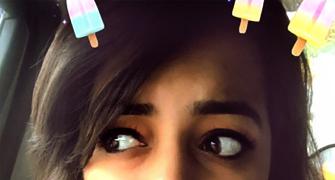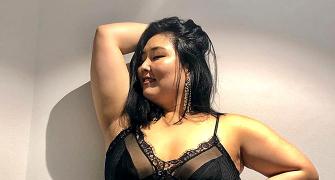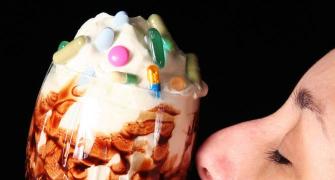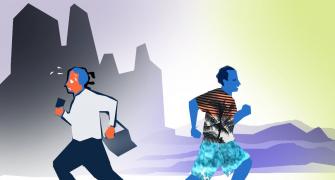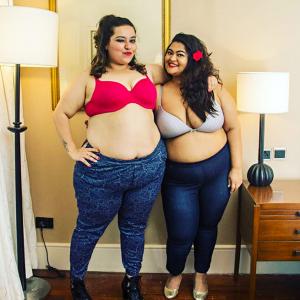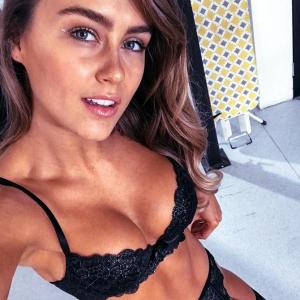Having a negative body image is like having someone in your head who is critical, mean, passing unpleasant comments, says Ajeeta Mulye.
The key to changing negative body image is to kill this rude critic. Remember your body hears everything your mind says.
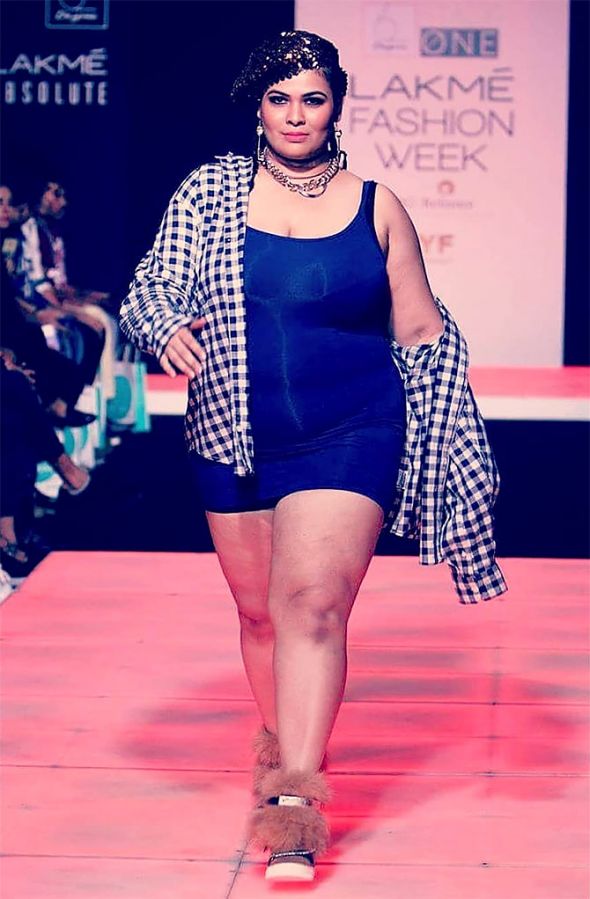
Body image means how a person sees and feels about his/her self.
It plays an important part in building your self esteem, especially in your growing up years.
If you are not satisfied with the way you look, your self esteem will be low.
It is important for you to know that you are perfect the way you are, accept your flaws and learn to love it.
To some extent, being preoccupied with body image is normal, if it's not causing dysfunction in his/her lives.
Body image starts forming at a young age when a person starts giving feedback to self or receives feedback on his/her looks, body shape and size from significant others in their lives.
This leads to form either a positive or negative self image.
When a person feels happy, confident, satisfied with their body it's called positive body image of self.
What is a negative body disorder?
Negative body image is when someone does one or all of the following:
- expresses thoughts or feelings about not liking his/her body,
- worries about his/her body shape, weight
- has a worrying dieting behaviour (counting calories, avoiding certain foods)
- is sensitive to comments about body shape, size, weight, and eating habits.
The feelings associated with negative body image is shameful, dissatisfied, and conscious of own curves and body parts.
Media and peers also play an important role in shaping a body image among youths.
Social media plays a major role in shaping opinions.
It exposes youth to 'flawless beauty' by promoting images post 'make up and Photoshop.'
Also, the dangers of clicking, spending hours to edit and uploading profile pictures on various social media sites, counting and comparing the likes and comments received on them contribute to developing negative body image.
If unattended, these youngsters may also try out unhealthy ways -- like dieting, starving, overeating, taking steroids, over exercising etc to look thin, cool, bulky or macho -- without consulting an expert to try to meet the standards set by peers or society.
Negative body image is one of the major contributing factors leading to psychological conditions like body dysmorphic disorder and eating disorders.
Body Dysmorphic Disorder
A condition in which person is pre-occupied with perceived flaws in physical appearance that are not observed or appear slight to others.
Eating Disorders
Anorexia Nervosa is the intense fear of gaining weight, restricting the food intake
Bulimia Nervosa or over eating is when the person lacks control over eating, engaging into behaviours that they feel will prevent weight gain.
This will encourage binge eating leading to further health problems.
These disorders affect the academic performances and relationship with peers and loved ones.
What can parents, friends and family do
Many youth want to alter the way they look with some even consulting cosmetic surgeons.
This could lead to anxiety and depression which further worsens the situation, increasing stress levels, risk of suicide and substance use.
It is important to intervene at the right time and make them realise that beauty is skin deep.
This can be started by using a non-judgmental approach, showing care and sharing facts about the changes seen in them.
The positive approach and concern shown will help to make them receptive and seek help.
Helping to identify negative thinking and feedback is the first way to bring about the change.
As a parent when you hear your child criticising his or her body, irrespective of any age, don’t ignore them.
Address the comments passed and ask questions on why they think so about their body.
This will help start a conversation and provide an opportunity to discuss and point out on what makes them special.
Learn to accept and love yourself
Having a negative body image is like having someone in your head who is critical, mean and passing unpleasant comments.
For example, 'I look fat from thighs. My tummy is not flat.'
This critic makes one feel terrible. It forces the person to look for ways to feel better and end up eating something, which gives momentary pleasure.
Minutes later the critic is back to comment and take you on a guilt trip.
The key to changing negative body image is to kill this rude critic. Remember your body hears everything your mind says.
When you look in the mirror, identify what you love about your body and give yourself positive feedback to rewire the brain.
Realise that the problem is not the body. It is what YOU think about it.
Simple statements like 'I am beautiful' 'I have beautiful eyes' or 'I love my hair' can do wonders.
Focus on being a good human being than improving your looks.
Influence of media is important to address.
It is important to discuss what a healthy body is and how our healthy bodies sometimes look different from what we see on magazines/TV.
Eating healthy is necessary.
Train yourself to see media mindfully as well as eating mindfully.
Focus on exercising to stay fit than to lose weight.
Understand the long term effects of dieting, over exercising -- the damage it causes to body parts and overall development.
Seek professional help from a psychologist if you find it difficult to overcome negative thinking about your body or unhealthy habits.
When you see your friends or /and relative, compliment them for looking gorgeous rather than commenting on their shape and body size.
Being skinny, curvy, healthy is okay but criticising someone for their body type is not.
Beauty is all about being comfortable in your own skin and accepting your self with all the flaws and imperfections.
Your body is perfect. You just need to learn how to love it.
 Ajeeta Mulye is psychologist and outreach manager at Mpower --The Foundation, an initiative of Aditya Birla Education Trust that provides mental healthcare solutions.
Ajeeta Mulye is psychologist and outreach manager at Mpower --The Foundation, an initiative of Aditya Birla Education Trust that provides mental healthcare solutions.

